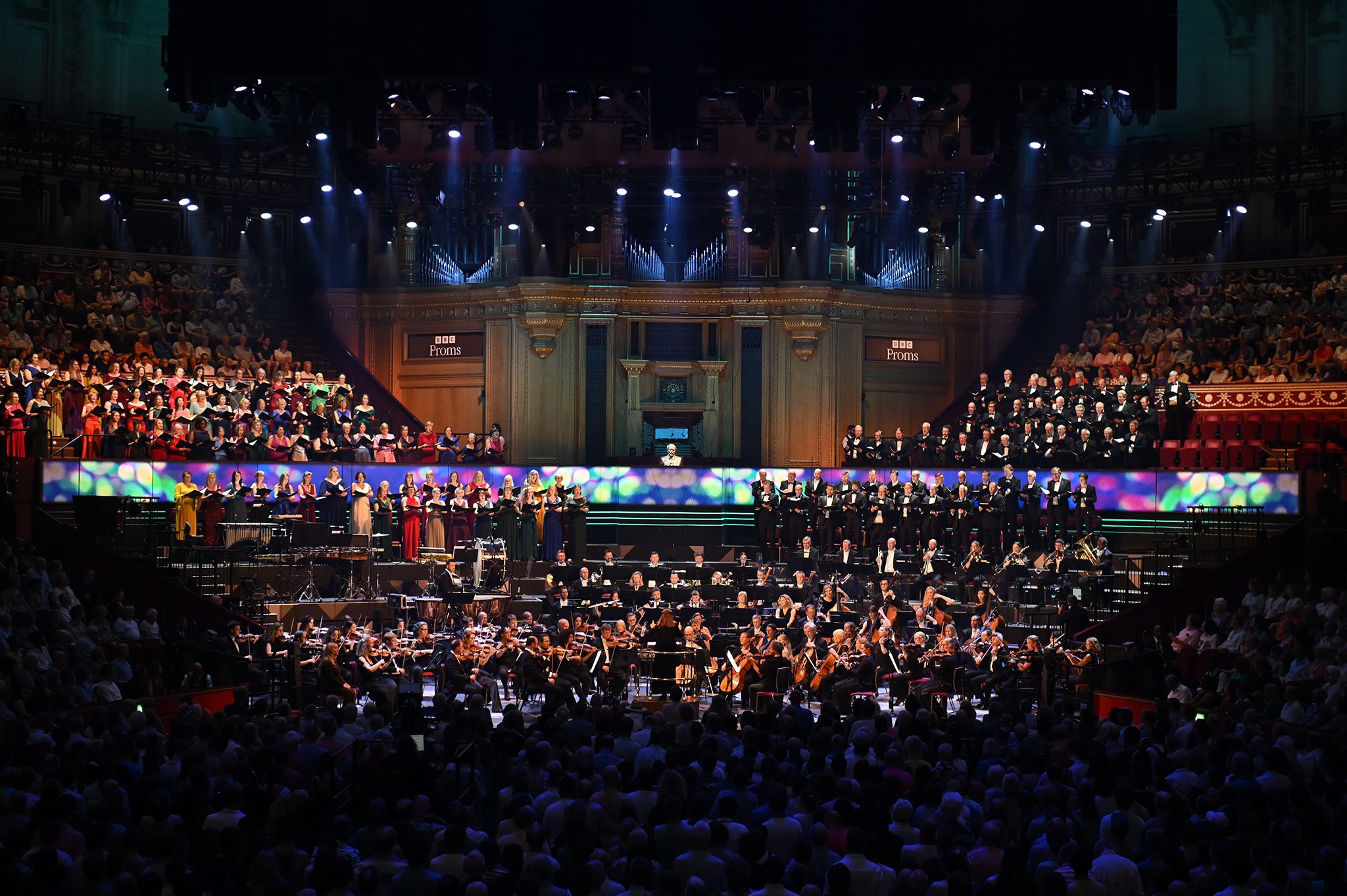The Aldeurgh Festival 2024 opened with English Touring Opera’s production of Judith Weir’s Blond Eckbert on Friday night at Snape Maltings Concert Hall in Suffolk.
Directed by Robin Norton-Hale and conducted by Gerry Cornelius, the production provided a short sharp injection of psychological torment, underpinned by an evocative score by composer Judith Weir whose vocal writing draws much from Benjamin Britten’s approach to opera.
Weir’s music is being celebrated at the 75th Aldeburgh Festival this year. Her ‘pocket’ arrangement of her 1994 opera seemed like a fitting opening for the milestone Festival.

Husband and wife Eckbert and Berthe’s lives are upended when a lifelong friend visits their secluded forest hideaway. Encouraged by her pensive husband Eckbert, Berthe shares her life story—a tale of distant parents, a forest-bound caregiver with a jewel-laying bird, wealth that proves quite the temptation for Berthe who, in pursuit of adulthood and independence, abandons her living arrangement, taking the bird, the jewels and the family dog, the name of which to this day Berthe cannot recall.
It’s the couple’s unexpected houseguest Walthe who freaks out the couple by recalling the dog’s name, setting them on a path to self-realization via an uncomfortable truth about their true identities as brother and sister. Tragic consequences ensue. Warning: there aren’t many laughs here.

Judith Weir’s libretto, based on the 18th-century poem Ludwig Tieck (seen as the beginning of German romanticism), is in its compact form at least a clinical analysis of a dark tale of psychological torment written a staggering 100 years before Freud. Weir sets this in a characteristically forensic fashion drawing on her own Jungian influences with signature compositional efficiency.
The story cracks on at quite a pace (running time 70 minutes) meaning the direction needs to be as forensic as the score. Director Robin Norton-Hale’s production doesn’t disappoint, blending film noir, Hitchcock, and post-war chic. German romanticism’s fascination with nature is seen in the forest setting complete with giant birch trees that reduced man and woman and fragile, vulnerable and naive.

Berthe (Flora McIntosh) and Walthe (William Morgan who later plays Hugo, and An Old Woman) are called upon to provide an enormous amount of exposition. Once Berthe has started questioning Walthe’s actions, knowledge and intention her role seems to disappear, the memory of her when she’s not present on stage far more chilling than the lines that might explain her absence. Walthe and Hugo hasten Eckbert’s descent into psychological turmoil. The Old Woman provides the denouement. Despite these functions, both musicians created characters with depth, vulnerability, and in places, humility, McIntosh navigating Weir’s complex writing with ease.
When the nature of Berthe and Eckbert’s relationship is revealed the ensuing actions underscore one of the opera’s themes: the image we present, shaped by our formative years, often masks the truth underneath. When true self-awareness is achieved, the transformation can be profound. For Eckbert, this results in psychological torment, moral decline, and ultimately, death.

The libretto’s fast pace allows these moments to be depicted with forensic precision. Highly descriptive musical motifs in the orchestra underscore distinct stage moves, illustrating mood, thought, and intent. The second act exchange between Eckbert and Hugo is a succinct, unsettling yet relatable depiction of Eckbert’s descent into paranoia.
Simon Wallfisch’s Eckbert is bold and compelling, first as the tortured soul, constantly fidgeting and signaling underlying agitation through non-verbal communication, and later, in the forest in pursuit of Walther, whom he eventually murders.

Aoife Miskelly’s portrayal of the Bird is faintly menacing, with strutting and stretching, beautiful poses, and soaring melodic lines delivered with apparent ease. Her voice has a silvery texture to it, her movements plausible. A considerable achievement.
Eleanor Bull’s sophisticated set design, featuring an Ercol-furnished forest apartment, initially encloses the characters safely, with automated blinds shutting off the outside world. In the forest, the characters are dwarfed by nature, vulnerable in their battle against the shadows swirling menacingly around them. Unexpectedly, I wanted those shadows to be stronger with higher contrast and sharper lines, still, the production design efficiently used the space, utilising multiple performance areas in a limited space.
This forensic attention to detail in design, direction, and music may have come at the expense of the psychological eeriness expected from this unsettling tale. The compact work left little time for the consequences of thoughts, feelings, and events to fully resonate. Nonetheless, it was a visual treat and a thought-provoking presentation of a work that invites further exploration. I would gladly attend repeat performances, with an opportunity arising later this year.



